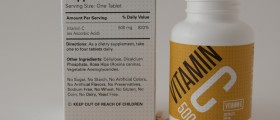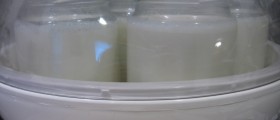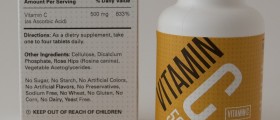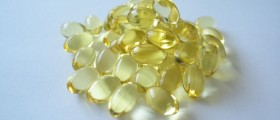
Facts - Vitamin C
Vitamin C is a water soluble vitamin, known to assist and enhance many processes in the human body. Fruits and vegetables are valuable sources of this vitamin, but it can also be made in a laboratory.
Vitamin C is essential for the growth and healing of every problem in the body. It is beneficial in ligament, tendon and skin problems and also in blood vessel issues. For centuries people use vitamin C to speed up wound healing, prevent and heal scurvy and promote good health of the body. This vitamin is important to make collagen and thus also very relevant for the skin, blood vessels and scars. Bones, cartilage and teeth always benefit from vitamin C.
There are also many different conditions when one can use vitamin C, including some relatively mild conditions such as gum problems, stomach ulcers, acne, skin infections, bladder and prostate problems and bronchitis. Even some serious medical issues can benefit from vitamins C and it’s frequently used in people suffering from HIV/ADIS, tuberculosis and dysentery.
Scurvy was historically often a problem of sailors and other people that spent many days on the ship. Lack of stock of fresh fruits and vegetables was causing gum bleeding, teeth loss, spots on the skin anddepression.
These days, vitamin C is most commonly used to treat common cold and enhance human immune system.
Vitamin C Side Effects
The recommended daily doses of vitamin C are still reason for debate, but many doctors agree that 45 to 95mg of vitamin C will be sufficient for most people.
Too much of vitamin C can cause some unpleasant, but not very dangerous effects. These effects may warn you that you overstepped with these supplements. Extremely high doses can affect your teeth, kidneys and lead to the formation of leg blood clots.
People using high doses of vitamin C may experience: nausea, vomiting, heartburn, abdominal cramps, headaches or diarrhea. Some of them might also complain about tiredness, skin flushing, drowsiness and sleepingproblems.
Vitamin C is used in skin products, especially to prevent the tissue damage from radiation therapy. These patients could suffer from skin irritation or skin allergies to vitamin C. Allergy symptoms are usually skin rash, hives, swelling of the mouth or the throat and breathing problems.
Too much of vitamin C, as we said, can cause more severe side effects, including: teeth decay (associated with the long term use of chewing vitamin C tablets), kidney stones, deep vein thrombosis (leg clots), or hemolysis in some patients. Vitamin C may also cause problems for people with kidney related problems. High doses of this vitamin may be responsible for increased absorption of aluminum, which may worsen the situation in kidney disease patients.

















Your thoughts on this
Loading...